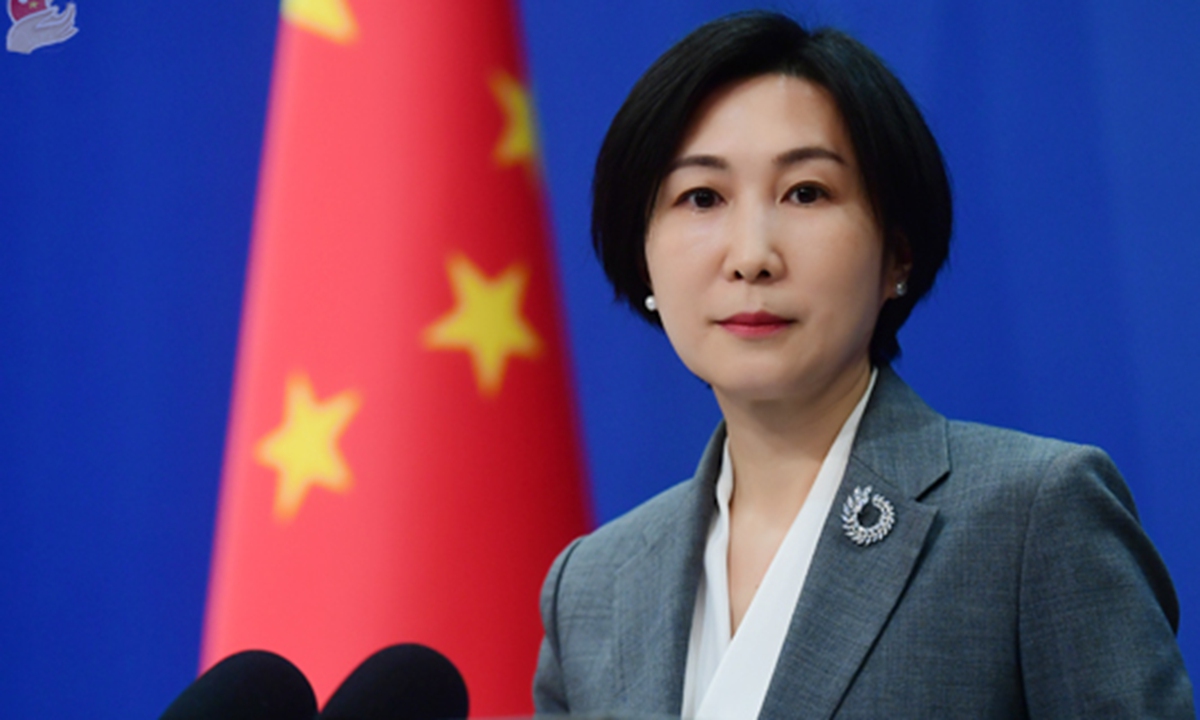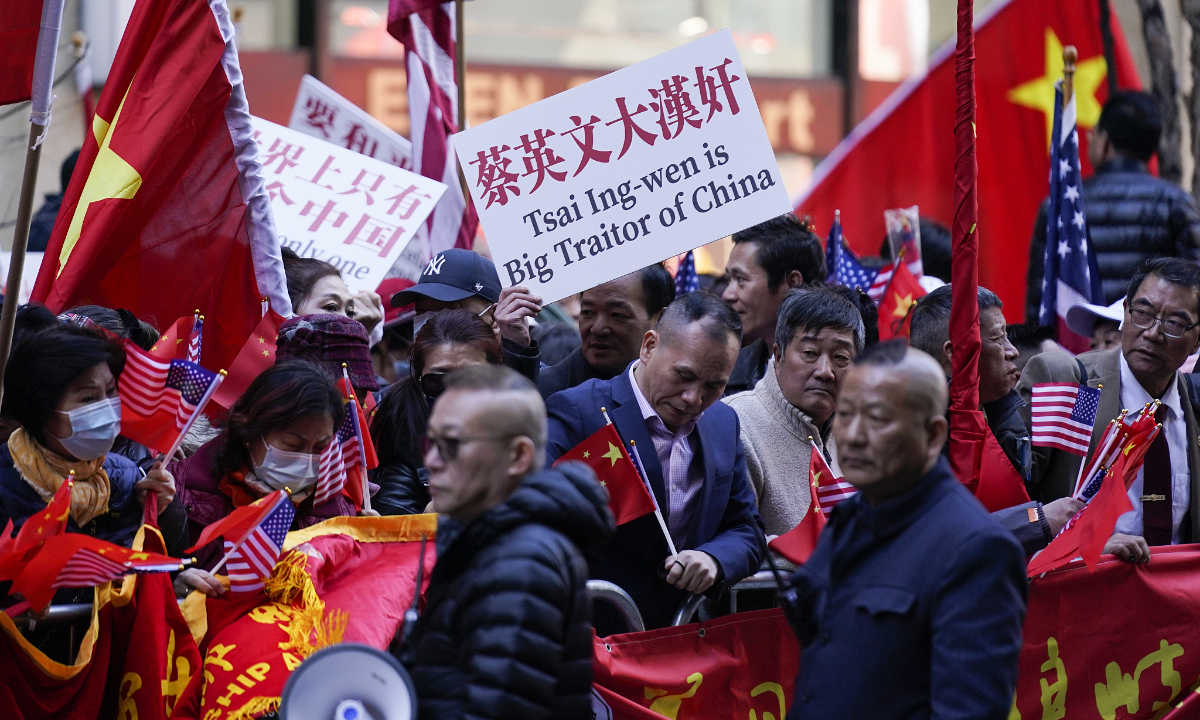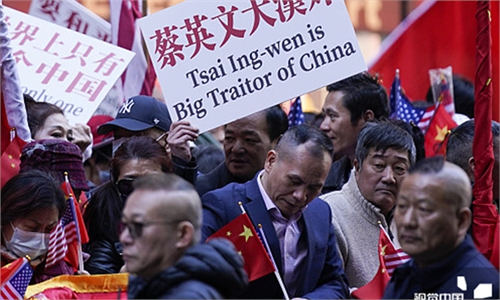Chinese FM issues warning over Tsai’s stopover in US for third consecutive day, as secessionist awarded by conservative think tank

Chinese Foreign Ministry spokesperson Mao Ning
China on Friday expressed strong opposition to Taiwan regional leader Tsai Ing-wen's "transit trip" through the US, which violates the one-China principle, and urged the US to keep its word and take concrete actions to uphold the political foundation of China-US relations.
China's solemn statement came after Tsai was awarded by a US research policy institute while traveling through New York on her way to Guatemala and Belize. Tsai boasted about the island's "democracy" and importance of cooperation with the US in the field of security.
On Friday, Mao Ning, a Chinese Foreign Ministry spokesperson, told a press briefing, "We strongly oppose any US visit by the leader of the Taiwan authorities regardless of the rationale or pretext, and strongly oppose all forms of US contact with the Taiwan authorities, which violates the one-China principle."
What has happened proves that this trip by Tsai is not so much a "transit," but an attempt to seek breakthroughs and propagate "Taiwan independence," Mao said. "No one and no force can hold back China's reunification."
This is the third day in a row that the Chinese Foreign Ministry has issued a stern warning over Tsai's stopover in the US. Mao said the issue is not about China overreacting, but the US egregiously conniving at and supporting Taiwan secessionists.

Chinese nationals hold a board saying "Tsai Ing-wen is big traitor of China" to protest Tsai's transit trip on March 29, 2023 outside the hotel where she was staying in Manhattan, New York. Photo: VCG
On Thursday, Tsai received a "Global Leadership Award" from the Hudson Institute, a conservative US think tank that was attended by extreme anti-China politicians such as former US president Donald Trump's secretary of state Mike Pompeo and high-ranking advisor Miles Yu.
By setting up narratives on "authoritarianism against democracy," Tsai criticized the mainland by citing "Russia's invasion of Ukraine" as an example, the Washington Post reported.
Liu Weidong, a research fellow at the Institute of American Studies at the Chinese Academy of Social Sciences, told the Global Times on Friday that the purpose of Tsai's approach is clear - to further tie Taiwan secessionists to US domestic politics.
"Tsai cast herself as the representative of democracy within the Chinese community, while discrediting the mainland system, and conducted social mobilization in the US to pressure the Americans: if you don't support me, you don't support democracy, and thus the self-proclaimed moral sense of the US is false," Liu explained.
The White House said Wednesday that Secretary of State Antony Blinken still wants to visit China after postponing a trip last month, according to US media outlets.
Wang Yi, director of the Office of the Foreign Affairs Commission of the Communist Party of China (CPC) Central Committee, reiterated China's position on the Taiwan question during a meeting with Stephen Orlins, president of the National Committee on US-China Relations, in Beijing.
The US must honor its words and take concrete actions to uphold the political foundation of China-US relations, Wang said.
Tsai has shown a preference between the two parties of the US, which will undoubtedly increase the polarization of partisan battles in the US, analysts said. In general, the DPP authorities have better ties with the Republicans and their think tanks, which have more irrational anti-China hawks, Liu said.
With politicians like Mike Pompeo and Miles Yu, the Hudson Institute is not closely affiliated with the Biden administration, but with the Republican establishment, while Democratic think tanks and the GOP think tanks are now constantly diverging, reflecting the partisan polarization in the US, the expert remarked.
The Hudson Institute and Tsai are using each other, with Tsai hoping to increase her international visibility and propagate "Taiwan independence" through the think tank activity, while the think tank hopes to enhance its own status and influence among conservative camps through Tsai's visit.
According to media reports, the right-leaning think tank with a long-standing hawkish anti-China posture has received funds from Taiwan authorities' representative office in the US.
The accumulated resources of conservative think-tanks may come in handy in the future if a Republican president takes the White House, though Biden now favors Democratic think-tanks, Liu said.


